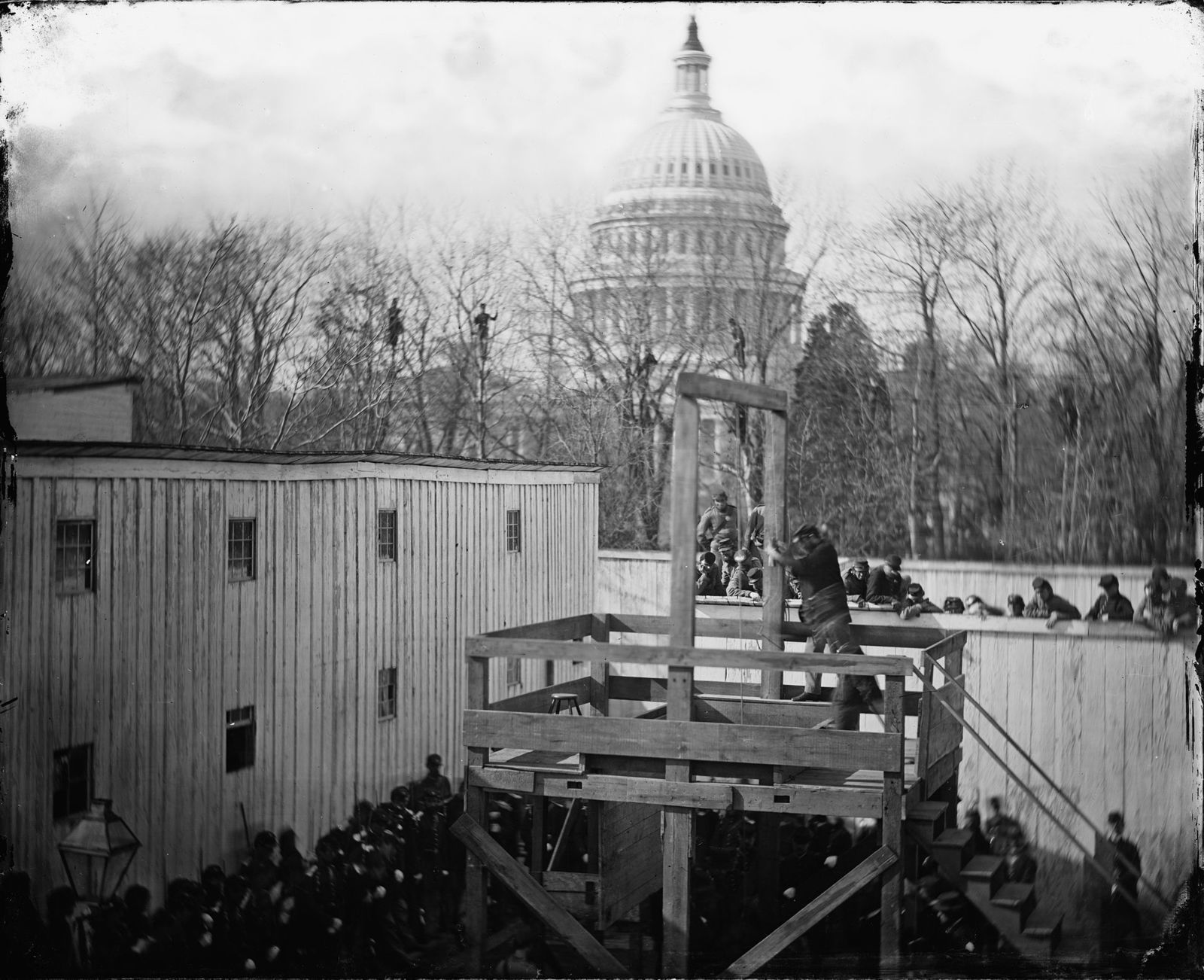143: Lincoln's Code: 4of4: The Laws of War in American History Hardcover – September 4, 2012 by John Fabian Witt (Author)

Image:The 1865 execution of convicted Civil War war criminal (https://en.wikipedia.org/wiki/War_criminal) Henry Wirz (https://en.wikipedia.org/wiki/Henry_Wirz) near the U.S. Capitol moments after the trap door was sprung. Alexander Gardner (https://en.wikipedia.org/wiki/en:Alexander_Gardner_(photographer)) - This image is available from the United States Library of Congress (https://commons.wikimedia.org/wiki/Library_of_Congress) 's Prints and Photographs division (https://www.loc.gov/rr/print/) under the digital ID cwpb.04196 (http://hdl.loc.gov/loc.pnp/cwpb.04196) . This tag does not indicate the copyright status of the attached work. A normal copyright tag is still required. See Commons:Licensing (https://commons.wikimedia.org/wiki/Commons:Licensing) for more information. The execution of Henry Wirz (https://en.wikipedia.org/wiki/Henry_Wirz) , commandant of the (Confederate) Andersonville Prison, near the US Capitol moments after the trap door was sprung. Washington, D.C. Soldier springing the trap; men in trees and Capitol dome beyond Permission details Rights Advisory: No known restrictions on publication.View more (https://en.wikipedia.org/wiki/Old_Brick_Capitol#) Public Domain (https://commons.wikimedia.org/wiki/File:Execution_of_Henry_Wirz.jpg) view terms File:Execution of Henry Wirz.jpg Created: 10 November 1865date QS:P571,+1865-11-10T00:00:00Z/11 Lincoln's Code: 4of4: The Laws of War in American History Hardcover – September 4, 2012 by John Fabian Witt (https://www.amazon.com/John-Fabian-Witt/e/B001JSEABC/ref=dp_byline_cont_book_1) (Author) https://www.amazon.com/Lincolns-Code-Laws-American-History/dp/1416569839/ref=sr_1_1?dchild=1&keywords=witt+lincoln%27s+code&qid=1593913678&s=books&sr=1-1 In the closing days of 1862, just three weeks before Emancipation, the administration of Abraham Lincoln commissioned a code setting forth the laws of war for US armies. It announced standards of conduct in wartime—concerning torture, prisoners of war, civilians, spies, and slaves—that shaped the course of the Civil War. By the twentieth century, Lincoln’s code would be incorporated into the Geneva Conventions and form the basis of a new international law of war. In this deeply original book, John Fabian Witt tells the fascinating history of the laws of war and its eminent cast of characters—Washington, Jefferson, Franklin, Madison, and Lincoln—as they crafted the articles that would change the course of world history. Witt’s engrossing exploration of the dilemmas at the heart of the laws of war is a prehistory of our own era. Lincoln’s Code reveals that the heated controversies of twenty-first-century warfare have roots going back to the beginnings of American history. It is a compelling story of ideals under pressure and a landmark contribution to our understanding of the American experience.